Jahangir Mohammed, of the Centre for Muslim Affairs, says France should know all about terrorism because they practically invented it.
I enjoy reading French political history and there is a great deal to learn from it.
Recently, French President Emmanuel Macron declared that “Islam is in crisis” because of increasing political violence taking place in the Muslim world over the last 40 years.
But I would expect a French politician with an education in his own political history to understand the causes of political violence in the Muslim world much better than his recent statements indicate. After all, the French Republic was built on the back of political violence (terrorism).
The French also supported the political violence of the independence movement of America against British rule. They provided, money, arms, troops, military leadership and naval support that tipped the balance in favour of the American independence movement.
So, in fact, both the French and American states and democracies were born through political violence.
Of course, violence leading to political change has not been unique to France and the USA; it has been a feature of the birth of many nations, indeed much of human history too.
French internal terror, however, has a fascinating history which they would rather forget (let’s not also forget their colonial terrorism and the violence/massacres of the Napoleonic wars in the name of enlightenment and cultural superiority).
The French Revolution: Liberty, Equality, Fraternity and Terrorism?
Violence played a key role in the build-up to and aftermath of the French Revolution (May 1789).
Those who supported the overthrow of the monarchy and its state resorted to “popular violence” to overthrow the existing system, and also to defend themselves from the ruling system’s oppressive response to demands for political change; as well when embedding the new Republican system in place of the old against counter revolution. People’s armed militias were formed to defend the people from the royalist military. There were many violent protests and riots during the revolution.
Two of the defining events of the revolution involved grotesque violence. On the 14th of July 1789 a notorious state prison known as the Bastille, a symbol of royal rule, was attacked by an angry mob. The purpose of the attack was not so much to release the seven prisoners held there, but to secure the ammunition hidden behind the fort walls (it was also a military fort). The prison was overtaken after a violent battle and the prison governor beheaded. His head was then paraded on a spike around the streets of France. This event of political violence is until today celebrated every year as a national holiday (Bastille Day).
On the 21st January 1793 deposed King Louis XVI was executed for treason and beheaded at the guillotine. A guard took his severed head and held it on display on the platform. The crowd cheered, threw their hats in the air and shouted “Vive La France”. His wife Queen Marie Antoinette was also decapitated on the 16th October 1793.
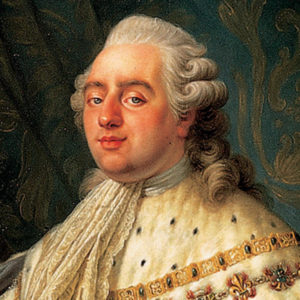
After the revolution “the Reign of Terror “ began (1793-1794) when Jacobin leader Maximilien de Robespierre came to power in 1793. During this period, the rule of law was abandoned, and some 17,000 people were executed at the guillotine. Robespierre was not just a leader of the revolution; he was an ideologue and a passionate advocate for political violence. Robespierre defended terror as a virtue and necessity in pursuit of liberation and justice to defeat counter revolutionaries.
“If the mainspring of popular government in peacetime is virtue, the mainspring of popular government in revolution is both virtue and terror: virtue without which terror is disastrous; terror without which virtue is powerless. Terror is nothing but prompt, severe, inflexible justice; it is therefore an emanation of virtue…”
“to punish the oppressors of humanity: that is clemency; to forgive them is barbarity”
“Peoples do not judge in the same way as courts of law; they do not hand down sentences, they throw thunderbolts; they do not condemn kings, they drop them into the void; and this justice is worth as much as that of the courts”.
Robespierre eventually was also decapitated at the guillotine. The French obsession and culture for beheading was later exported and thousands of Algerian Muslims, and other people, were at the receiving end of the French political culture of “terrorism”.
Muslim world crisis?
President Macron said that Islam was in crisis around the world and in need of liberation. Islam as a religion is not in need of liberation, but it is true that the politics of the Muslim world is in crisis and certainly needs liberating.
But if only he, and European establishments, could remove the colonial blinkers of prejudice and anti-Islam hatred from their eyes, and view Muslims from the lens of their own history, they might recognise how much in common the current Muslim struggles have with historical French and European struggles for political change.

The Muslim world, for sure, has its fair share of Louis XVI’s supported by religious authorities. They also have masses of people struggling for liberation and accountable government. They have the odd Robespierre too.
The added problem of Muslim liberation is that while European governments have liberated themselves from the absolutist authoritarian rule of monarchs and tyrants, they deny Muslim people the very same right to freedom and to liberate themselves by supporting their unjust rulers. And of course many would argue that they then find themselves at the receiving end of some political violence as a result of that support.
People of all colours and religions will always find a way of freeing themselves from injustice and absolutist tyranny. The history of political change is sadly littered with much violence, because as the French learnt, those in power and their supporters will resist political change using violence and terror, and sometimes bloodshed and violence comes afterwards too.
Charlie Hebdo
The Charlie Hebdo caricatures and the general attacks on the Prophet Muhammad (pbuh) and Islam as “a religion of violence” are not new. They are a rehashing of centuries-old Christian Crusader and Oriental polemics based on both racism and anti-Islam propaganda.
Faced with a failure to defeat the Muslim world in the Crusades, Europeans resorted to smearing both Islam and its Prophet (pbuh) as violent and evil and inspired by the devil. It was the only way to explain their failures, whilst ignoring their own violent behaviour.
The same racist attitude existed during colonialism. It was always the African, Native Indians, Arabs, Indians or Turks who were presented as savages and their nature or beliefs considered inherently evil because of their violence in defence of their lands or resources.
The Europeans supposedly had higher values and were there to civilise the “savages”. They avoided discussing their own violent conduct and behaviour, just as all the so-called terrorism/extremism experts avoid it today.
The behaviour of Charlie Hebdo and French politicians on this issue has little to do with any higher value, it is the type of behaviour you expect from Nazi street thugs targeting Muslims to get a reaction. The French have their Nazi history too, let us not forget. The Vichy Government during the Second World War, which allied and collaborated with the German Nazi regime, sent many Jews to the gas chambers.
Why target a Prophet (pbuh) who died in 632 AD and has nothing to do with, or responsibility for, the political crisis and violence in the Muslim world today which has more to do with European behaviour than his? Whilst the French Republic was born out of terrorism, Muhammad (pbuh) established his political order relatively peacefully and without mass revenge and retaliation.
The way forward for France on this issue is not to continue down the path of colonial racial arrogance of “our values are superior to yours. This is our country”. This supremacist attitude is outdated.
No religion has had more attacks, articles, dissertations, books written against it than Islam. Muslims have never minded criticism and debate, but they will never accept abuse, insult, or racist and pornographic caricature of their most sacred personality as critique, or in the name of some non-existent unrestricted freedom of expression. We have our sacred values too.
The way forward is for an approach based on civility, mutual respect, and equality and an application of hate and disorder laws in France.
The Austrian 1912 law of Islam is perhaps an example that another European approach is possible (although this has been undermined with the rise in far-right in Austria). This considers Islam as a religion of state alongside Christian denominations. It also affords some protection to the religious feelings of Muslims.
Recently, a European Court of Human rights ruling, adjudicating on Austrian law, declared that a Austrian woman did not have the right under freedom of expression to call the Prophet Muhammad (pbuh) a paedophile, and stated that Austrian courts had carefully balanced the applicant’s “right to freedom of expression with the right of others to have their religious feelings protected, and served the legitimate aim of preserving religious peace in Austria.”
The current actions of the French state in removing the rule of law and resorting to collective targeting and punishment of the Muslim community is reminiscent of the actions of Jacobin and Vichy State authoritarianism. It will only lead to more injustice, alienation and violence by French Muslims, and a rise in fascist and racist hate and violence among non-Muslims.
Respect breeds respect and hate breeds hate. We need to find a way of co-existing peacefully and in a civilised manner. Sadly, if French history is anything to go by, we can predict which way they will go.

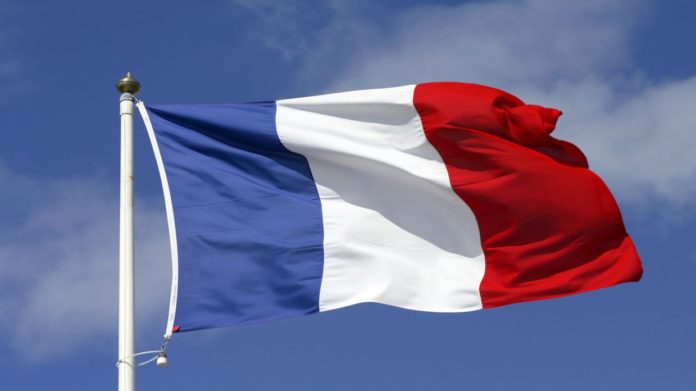
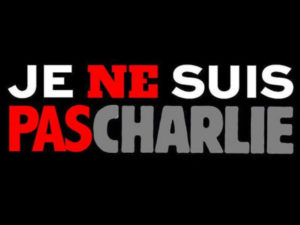

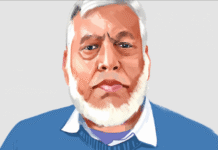
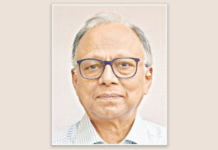






Very wise observations.